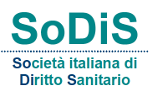The One Health approach, which emphasizes the interdependence of human, animal, and environmental health, provides a comprehensive framework for addressing complex health challenges. This paper explores the potential for integrating One Health principles into Albania’s legal framework through a comprehensive analysis of judicial decisions issued by various courts. These rulings, while addressing core legal and health-related issues, serve as a focal point for evaluating how One Health can be systematically incorporated into the country’s legal framework. First, an analysis of Albania’s Constitution reveals an implicit alignment between One Health principles and the constitutional rights to health and environmental protection. Although the Constitution does not explicitly mention One Health, this analysis demonstrates that it offers a solid legal foundation for Second, the paper conducts a comparative legal analysis, critically evaluating Albania’s current legal landscape in areas such as environmental protection, animal health, and public health. Furthermore, this analysis exposes significant gaps in legal framework and institutional coordination, which hinder the of a more integrated health approach. Additionally, it underscores the relevance of Albania’s international obligations which, if fully implemented, could reinforce the integration of One Health. Finally, the analysis delves into different key legal cases, each ruled by a different Court, to illustrate the fragmented approach to health and environmental governance in Albania. The Gërdec explosion case, issued by Albania’s Constitutional Court1, highlights the missed opportunity to incorporate One Health principles into legal decisions addressing industrial disasters. Meanwhile, the Patos- Marinza v. Bankers Petroleum case2, ruled by an international arbitration tribunal, on 5th of July of 2023, underscores the severe health and environmental impacts of industrial pollution. Similarly, the Vjosa River Hydro-Electric Complex dispute3, on 27th of July 2024, adjudicated by Albania’s Court of Administrative Appeals, demonstrates the consequences of infrastructure development on both public and ecosystem health. Together, these cases reveal the fragmented nature of Albania’s legal decision-making, where courts frequently overlook the interconnectedness of human, animal, and environmental health outcomes. In conclusion, Albania faces significant challenges, including legal fragmentation and weak intersectoral coordination, but also substantial opportunities to integrate One Health into its legal framework. By pursuing sustained legal reforms, enhancing better cooperation across sectors, and strengthening alignment with international frameworks, Albania can advance toward a more holistic approach that addresses the intricate connections between human, animal, and environmental health. embedding its principles into national Legal System.


